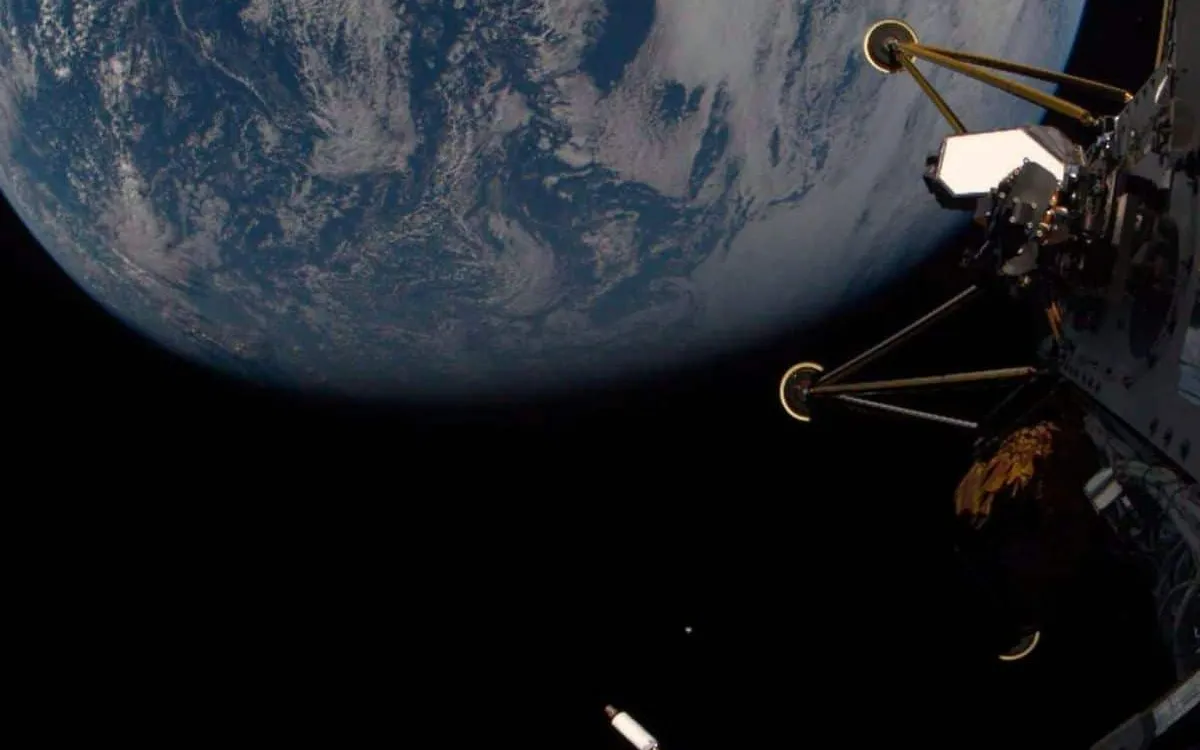
A private lunar lander, Athena, has successfully transmitted breathtaking images of Earth from space, offering a unique perspective of our planet shortly after its launch. Developed by Intuitive Machines, this innovative lander lifted off aboard a SpaceX Falcon 9 rocket from Florida’s Space Coast on February 26, 2025.
The launch of Athena was executed smoothly, and within hours of its deployment, the lander began sending back its first images from space. Among the most striking visuals is a photograph showcasing the Falcon 9’s upper stage still floating in the cosmos, accompanied by bright specks of other payloads launched simultaneously. These included NASA’s Lunar Trailblazer orbiter and Odin, a probe developed by the asteroid-mining company Astroforge.
Upon reaching space, Athena quickly established stable communication, initiated charging of its solar panels, and began preparations for a series of engine burns. These critical maneuvers are designed to refine its trajectory before entering lunar orbit, scheduled for March 3. If everything goes according to plan, a landing attempt is set for just three days later. “The lander is in excellent health and preparing for a series of planned main engine firings to refine her trajectory ahead of lunar orbit insertion, which is planned for March 3. Intuitive Machines expects a lunar landing opportunity on March 6,” the company stated.
The mission of Athena is poised to revolutionize lunar exploration, featuring cutting-edge scientific payloads aimed at unlocking the Moon’s hidden resources. Central to this initiative is the PRIME-1 (Polar Resources Ice Mining Experiment 1), an advanced system designed to detect and analyze water ice deposits located near the Moon’s south pole. Equipped with a deep-drilling tool, PRIME-1 will extract subsurface material, while a mass spectrometer will investigate its composition to assess the viability of lunar ice as a potential resource for future missions.
In addition to PRIME-1, Athena carries two innovative robotic explorers: Grace, a hopping spacecraft designed to navigate craters and challenging terrains, and MAPP, a small rover developed by Lunar Outpost to assist in surface exploration. These robotic machines will utilize Nokia’s Lunar Surface Communication System, which aims to deploy the first 4G/LTE network on the Moon, facilitating seamless wireless communication for future lunar operations. By demonstrating these advanced technologies, Athena’s mission is not merely a step toward lunar exploration—it represents a significant leap toward establishing a sustainable lunar infrastructure for upcoming human missions.
Intuitive Machines is making swift advancements in the commercial lunar sector. In February 2024, its first lander, Odysseus, made history as the first private spacecraft to successfully land on the Moon. However, Athena will encounter competition in its quest to become the next successful lunar lander. Firefly Aerospace’s Blue Ghost lander is en route to the Moon, with a landing attempt scheduled for March 2. Additionally, Tokyo-based ispace launched its Resilience lander in January, aiming for a touchdown later this year. These missions signify an exhilarating period for private space exploration.
NASA’s Artemis program is set to return humans to the Moon within the next few years, and missions like Athena IM-2 are playing a vital role in paving the way for this monumental achievement. By testing lunar communication networks, resource extraction technologies, and robotic exploration, private companies are becoming essential players in shaping the next era of space exploration.